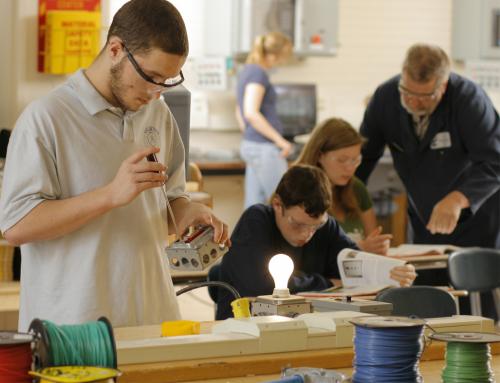Alternative Education describes a number of methods to teaching and learning other than traditional publicly- or privately-run schools.
These approaches can be applied to all students of all ages, from infancy to adulthood, and all levels of education.
- Usually the result of education reform and are rooted in countless philosophies that are basically different from those of conventional compulsory education.
- Can have strong political, scholarly, or philosophical orientations
- Can also be more informal associations of teachers and students dissatisfied with certain aspects of mainstream education
- Includes charter schools, alternative schools, independent schools, and home-based learning
- Highlights the importance of small class size, close relationships between students and teachers, and a sense of community.
- In the United States, this pertains to educational settings geared towards students whose needs cannot be met in the traditional school such as underachievers who do not qualify for special education, rather than educational alternatives for all students.
- Other terms: non-traditional education or educational alternative
Concepts:
- Education of young people should involve much more than simply turning them into future workers or citizens. The Swiss humanitarian Johann Heinrich Pestalozzi, the American transcendentalists Amos Bronson Alcott, Ralph Waldo Emerson, and Henry David Thoreau, the founders of progressive education John Dewey and Francis Parker, and educational pioneers such as Maria Montessori and Rudolf Steiner (founder of the Waldorf schools), among others, all insisted that education should be understood as the art of refining the moral, emotional, physical, psychological, and spiritual aspects of the developing child.
- Lately, social critics such as John Caldwell Holt, Paul Goodman, Frederick Mayer and Ivan Illich have examined education from more individualist, anarchist, and libertarian perspectives, that is, critiques of the ways that they deem conventional education undermines democracy by molding young people’s understandings.
- Other writers, from the revolutionary Paulo Freire to American educators like Herbert Kohl and Jonathan Kozol, have criticized mainstream Western education from the viewpoint of their varied left-liberal and radical politics.
Features:
- Educational alternatives are diverse. Unlike traditional privately run and publicly run schools which are remarkably similar in many aspects to one another, most alternatives do not comply to a “one model fits all” approach. Each educational alternative attempts to make and keep its own methods and approaches to learning and teaching. Practitioners aspire to realize that there are many ways of apprehending and understanding the needs of the whole child in balance with the needs of the community and society at large. Thus, each alternative approach is founded upon, sometimes drastically, various beliefs about what it means to live, learn, and grow in today’s society.
- The curricula in educational alternatives are taught within their respective settings. Across these alternatives, we find that traditional subjects such as reading, writing, and mathematics are not always taught separately but integrated into the overall learning experience. Other subjects like environmental education, ecology, or spirituality, which are often not found in more traditional school curricula, emerge from the interests of learners and teachers in a more open-ended learning community. For the most part, however, subject matter is only indirectly related to the root philosophies and educational approaches utilized in many alternative education systems. Often alternative approaches to education will vary considerably within a single type of alternative from one cultural or geographic setting to another.
